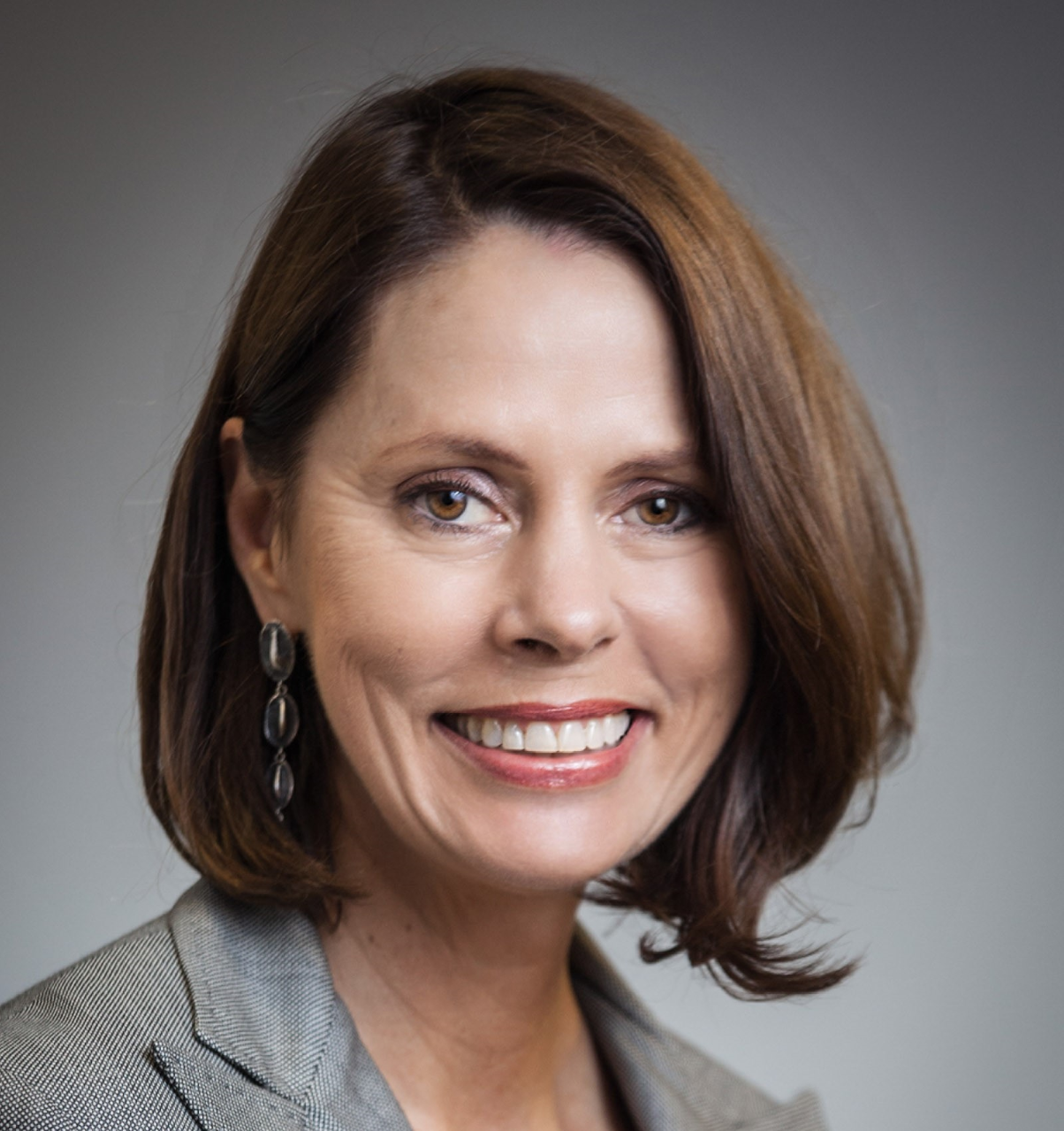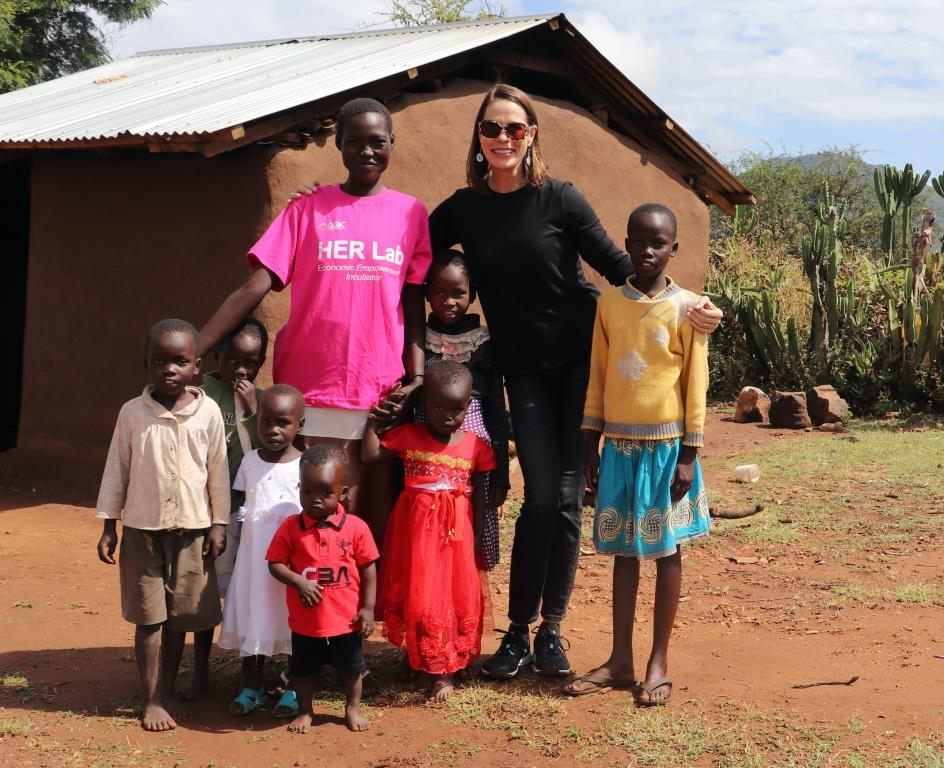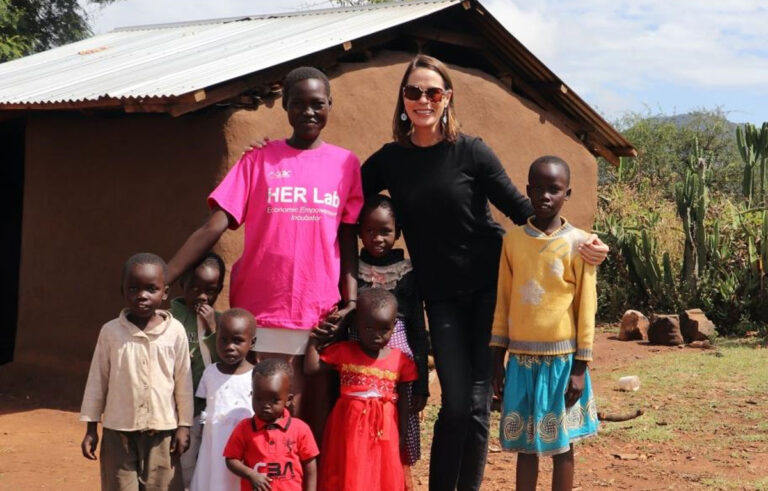“I thought, ‘How could each young woman own her empowerment?’”
Linda Latsko-Lockhart

This summer, a segment aired on Kenya’s Citizen TV in which two young Kenyan women were interviewed about their participation in a program that empowers at-risk girls in their country. The women, Asmahan Pogal and Lidemta Kawira, described how the program connects high school girls with local and long-distance mentors as they plan their educational and professional futures. Both alumna of the program, Pogal and Kawira are members of a leadership team running the program.
“One word that would sum it up would be ‘transformation,’” Kawira said. “I’ve seen myself grow, evolve, and transform from a young, shy teenage girl to the confident lady I am today.”
Watching the clip from her home in New York, Linda Latsko-Lockhart (BS design ’78) felt herself choke up. Not only had she witnessed these young women’s transformation firsthand, Latsko-Lockhart herself founded the nonprofit they were describing, Global Give Back Circle.
The segment came on the heels of another honor for Latsko-Lockhart: her inclusion in Forbes’ first-ever “50 Over 50: Impact” list, which highlights women “changing their communities and the world in ways big and small.”
Global Give Back Circle began as something small in 2006 — and has since grown into something undeniably big. After a work trip to South Africa in 1998, Lockhart had flown to Kenya and visited a Maasai village. Spending time with the people there seeded a question in her mind: What were the options for these young women if they decided they wanted to pursue work and lives different than those of their mothers and grandmothers?
Latsko-Lockhart thought back to her own education. After receiving her associate degree in retailing from Penn State Altoona, she’d wanted to continue her education but couldn’t afford it. She was working as a singing cocktail waitress outside of Ocean City, New Jersey, when the restaurant owner, a Drexel alumna, encouraged her to apply to the university. Latsko-Lockhart did — and she received a full scholarship.
“I thought, ‘How could each young woman own her empowerment?’” says Latsko-Lockhart, who went on to a successful career in retail and financial services management consulting. “That’s when I had this idea: this is a circle of giving back, and the girls would be giving back, too.”
Global Give Back Circle pairs at-risk adolescent girls with mentors when they are sophomores in high school. The girls attend life skills and workforce-readiness workshops on weekends and learn how to design “give-back commitments” and measure their impact. The girls might tutor peers, teach reproductive health workshops, or work in local children’s homes — some have even applied for grants to outfit their schools with solar panels. Over 75% of the girls are sponsored for tertiary education, through partnerships with private-sector organizations, foundations, angel investors and governments.
The program’s growth took an exponential turn when Latsko-Lockhart established a partnership with Microsoft, which contributed mentors and financial assistance. Latsko-Lockhart secured similar partnerships with Google, SAP and KPMG, and together with alumna of the program, also formed partnerships with more than 30 private-sector organizations in Kenya.
Now, beneficiaries of the program number 2,100 in Kenya alone, and over 4,000 across Rwanda, South Africa, China, Uganda, Ghana and India. The nonprofit has mobilized more than 30 companies, 2,200 mentors worldwide and $20 million in funding.

Linda Latsko-Lockhart poses with a young mother with her six kids and one of their young friends in West Pokot, Kenya, where Global Give Back Circle operates ‘HER Lab.’ In 2022, a Drexel student will be selected for a virtual co-op with HER Lab, helping Kenyan women achieve economic self-sufficiency.
Starting early 2022, Drexel students can play a role in Global Give Back Circle, as well. In West Pokot, Kenya, the program operates an economic empowerment incubator called ‘HER Lab’ that teaches entrepreneurial skills to recent high school graduates and to young women who fell through the cracks of the education system, from some of the most remote parts of the country. ‘HER Lab’ comprises a working farm, computer lab, and separate buildings where young women learn beadwork, hair design, sewing, tailoring and catering — and soon, the plumbing and electrical trades.
As part of a new co-op created by Latsko-Lockhart, a Charles D. Close School of Entrepreneurship student will work with young women in West Pokot virtually to help them develop business ideas to present at a ‘HER Lab’ pitch contest.
“It’ll be the Close student’s job to work with an Entrepreneurship Fellow from a Kenya university, and respond to the women’s ideas,” Latsko-Lockhart says, “and try to guide them as they nail down a plan.”
In other words, it’ll be one way a Close student can give back.
Donor support to The Co-op Opportunity Fund provides the resources for co-op stipends in unpaid and under-paid fields, helping students to follow their dreams.



